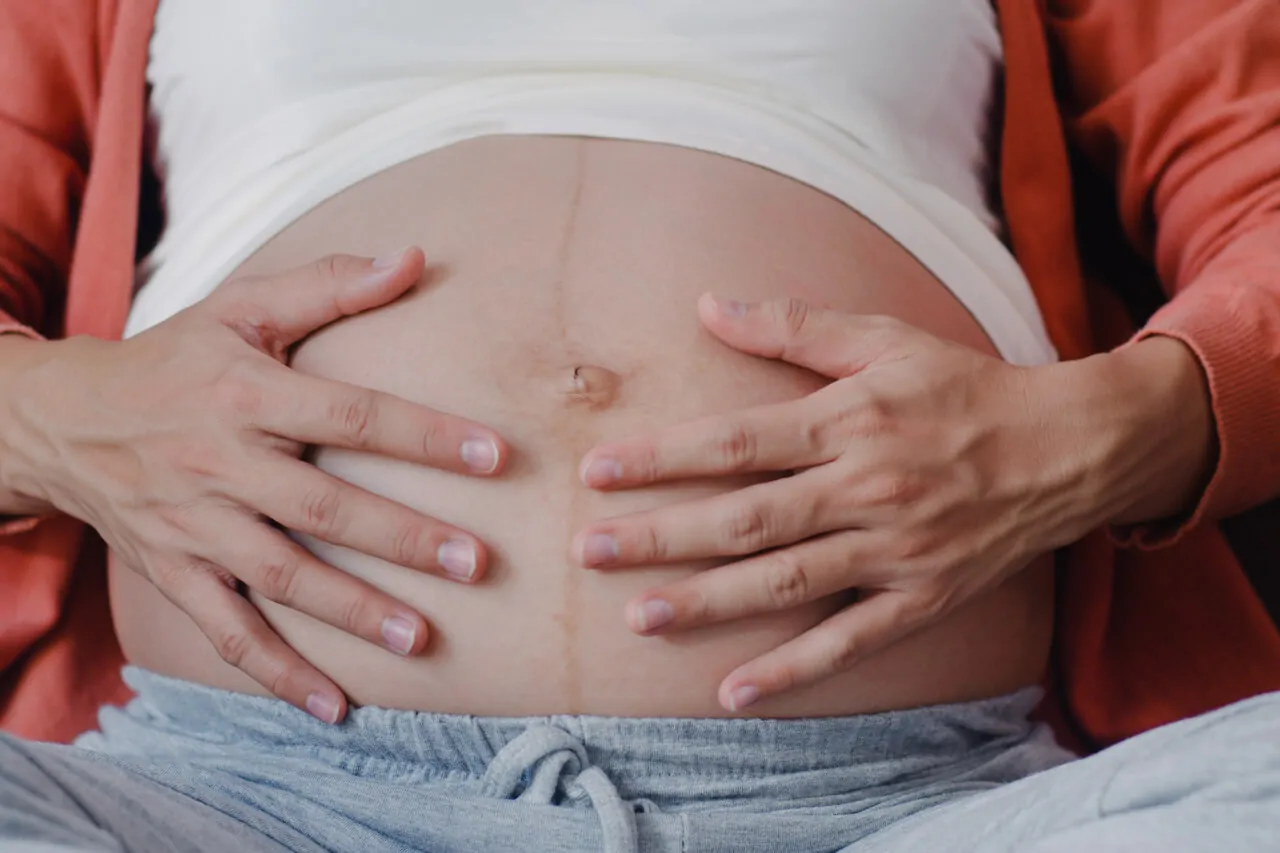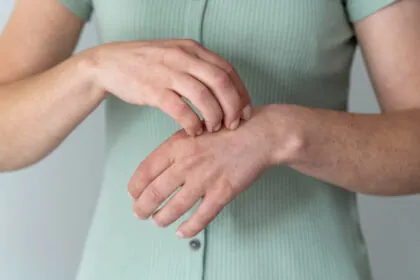Cholestasis refers to a medical condition characterized by the impairment or obstruction of bile flow from the liver. Bile is a substance produced by the liver that aids in the digestion and absorption of fats.
When it occurs, bile builds up in the liver and may lead to various symptoms and complications. There are two main types: intrahepatic cholestasis and extrahepatic cholestasis. Intrahepatic cholestasis occurs within the liver itself, often due to liver diseases, drug reactions, or genetic conditions. Extrahepatic cholestasis, on the other hand, occurs outside the liver, usually caused by blocked bile ducts or gallstones.
Causes
The condition can be caused by various factors, including:
Liver Diseases
Certain liver conditions can lead to cholestasis, such as hepatitis, cirrhosis, primary biliary cholangitis (PBC), primary sclerosing cholangitis (PSC), and alcoholic liver disease.
Gallstones
When gallstones block the bile ducts, it can cause extrahepatic cholestasis.
Medications
Some medications can impair bile flow and lead to it, including certain nonsteroidal anti-inflammatory drugs (NSAIDs), anabolic steroids, and oral contraceptives.
Pregnancy
Intrahepatic cholestasis of pregnancy (ICP) is a form of cholestasis that occurs during pregnancy, typically in the third trimester.
Hormonal changes are believed to contribute to its development.
Genetic Disorders
Certain inherited conditions, such as progressive familial intrahepatic cholestasis (PFIC), Alagille syndrome, and benign recurrent intrahepatic cholestasis (BRIC), can cause cholestasis.
Bile Duct Disorders
Conditions that affect the bile ducts, like bile duct tumors, strictures, or cysts, can obstruct bile flow and lead to cholestasis.
Infections
Some infections, such as viral hepatitis, cytomegalovirus (CMV), and Epstein-Barr virus (EBV), can cause cholestasis.
Granulomas
Inflammatory conditions that form granulomas, such as sarcoidosis and granulomatous hepatitis, can contribute to cholestasis.
It’s important to identify and address the underlying cause of cholestasis to effectively manage the condition and prevent complications.
Symptoms
The symptoms of cholestasis can vary depending on the underlying cause and the severity of the condition.
Here are some common symptoms associated:
Persistent Itching
Pruritus, or persistent itching, is a hallmark symptom.
The itching may be intense, widespread, and often more pronounced on the palms of the hands and the soles of the feet.
Scratching may provide temporary relief but can lead to skin damage and infections.
Jaundice
It also can cause jaundice, which is the yellowing of the skin and eyes.
Jaundice occurs due to the build-up of bilirubin, a yellow pigment, in the bloodstream.
The skin may have a yellowish hue, and the whites of the eyes may also appear yellow.
Dark Urine
Cholestasis can lead to changes in urine color.
The urine may appear darker than usual, often having a brownish or tea-colored appearance.
This change in urine color is due to the presence of bilirubin.
Pale Stools
The obstruction of bile flow can result in pale or clay-colored stools.
Bile gives stools their characteristic brown color, so a lack of bile in the intestine can cause the stools to become lighter.
Abdominal Pain
Some individuals may experience abdominal discomfort or pain.
This pain can range from mild to severe and may be felt in the upper right quadrant of the abdomen, where the liver is located.
Fatigue and Weakness
Cholestasis can cause fatigue and weakness.
This can be attributed to impaired digestion and absorption of nutrients, as well as the build-up of toxins in the bloodstream due to poor liver function.
It’s important to note that not all individuals will experience all of these symptoms, and the severity of symptoms can vary.
Complications
Here are some potential complications that can occur due to cholestasis along with details about each:
Liver damage
Cholestasis can lead to liver damage, especially if left untreated.
The reduced ability of bile to flow properly can cause the accumulation of toxic substances in the liver, leading to inflammation and potential long-term liver damage.
Malabsorption of nutrients
Cholestasis interferes with the digestion and absorption of essential nutrients, particularly fat-soluble vitamins (A, D, E, and K), as bile is necessary for their absorption.
This can result in deficiencies that can further affect overall health, such as impaired bone health and weakened immune system.
Jaundice
One of the hallmark symptoms of cholestasis is jaundice, a yellow discoloration of the skin and eyes due to the buildup of bilirubin.
Jaundice can indicate significant liver dysfunction or blockage of bile flow and may require timely medical intervention.
Itching or pruritus
Cholestasis can cause intense itching, also known as pruritus, which is often worse at night.
This itching can be debilitating and drastically impact the quality of life for individuals affected by cholestasis.
Gallstones
Cholestasis can contribute to the formation of gallstones, which are hardened deposits in the gallbladder.
Bile flow disruptions and changes in bile composition increase the risk of gallstone development and may require medical intervention, such as surgery, to address complications.
Pancreatitis
In some cases, cholestasis can lead to inflammation of the pancreas, a condition known as pancreatitis.
It occurs due to the backflow of bile into the pancreatic duct, causing damage and triggering inflammation in the pancreas.
Cholestasis of Pregnancy
Cholestasis of pregnancy, also known as intrahepatic cholestasis of pregnancy (ICP), can pose certain risks and complications to both the mother and the developing fetus.
Here are some of the potential complications associated with cholestasis during pregnancy:
- Preterm Delivery: ICP increases the risk of preterm delivery, which refers to giving birth before completing 37 weeks of gestation. The exact reason for this increased risk is not fully understood, but hormonal changes and potential effects on the placenta are believed to play a role.
- Fetal Distress: ICP can lead to fetal distress, wherein the fetus may not receive sufficient oxygen and nutrients through the placenta. This can result in an abnormal heart rate pattern or other signs of fetal compromise.
- Meconium-Stained Amniotic Fluid: ICP can cause the presence of meconium, a dark green substance that makes up the first feces of the newborn, in the amniotic fluid. Meconium-stained amniotic fluid may indicate fetal stress and can sometimes lead to complications during delivery.
- Stillbirth: Although rare, there is a slight increase in the risk of stillbirth (the loss of the baby before birth) associated with ICP. The exact cause of this increased risk is unknown, but it highlights the importance of close monitoring and management of cholestasis during pregnancy.
- Respiratory Distress Syndrome (RDS): Babies born to mothers with ICP may have an increased risk of developing respiratory distress syndrome. RDS is a condition where the newborn’s lungs are not fully developed, making breathing difficult.
Tips for Managing
Here are 7 tips for managing cholestasis, along with detailed explanations for each tip:
Maintain a Healthy Diet
Focus on consuming a well-balanced diet rich in antioxidants, vitamins, and minerals.
Include plenty of fruits, vegetables, whole grains, lean proteins, and healthy fats.
Avoid foods high in saturated and trans fats, processed sugars, and excessive salt.
Stay Hydrated
Drinking an adequate amount of water helps in maintaining overall liver health and promoting bile flow.
Aim to drink at least 8 cups of water per day, unless otherwise advised by your healthcare provider.
Avoid Alcohol and Certain Medications
Alcohol can worsen liver damage and hinder bile flow.
Additionally, certain medications, such as hormone replacement therapy or high-dose estrogen-containing contraceptives, may contribute to cholestasis.
Consult your healthcare provider regarding any medications you are taking and if they may affect cholestasis.
Exercise Regularly
Engaging in moderate physical activity, as per your healthcare provider’s guidance, can help maintain a healthy weight, improve liver function, and promote general well-being.
Choose activities like brisk walking, swimming, or cycling that suit your fitness level.
Manage Stress
High levels of stress can potentially exacerbate the symptoms.
Incorporate stress-management techniques such as deep breathing exercises, meditation, yoga, or engaging in hobbies and activities you enjoy.
Consult with a mental health professional if needed.
Monitor Vitamin Levels
The condition can impact the absorption of fat-soluble vitamins (A, D, E, K), leading to deficiencies.
Regularly monitor your vitamin levels and, if necessary, work with your healthcare provider to supplement any deficiencies.
Regular Medical Follow-ups
Schedule regular appointments with your healthcare provider to monitor liver function, check for any potential complications, adjust medication if needed, and discuss any concerns or changes in symptoms.
How to Prevent Cholestasis
Preventing cholestasis may not always be possible, especially if the underlying cause is a genetic or inherited condition.
However, there are steps you can take to lower the risk or manage the condition effectively:
Healthy Lifestyle
Maintaining a healthy lifestyle can help promote liver health and reduce the risk of certain liver diseases that can lead to cholestasis.
This includes regular exercise, a balanced diet, adequate hydration, and avoiding excessive alcohol consumption.
Medication Safety
Be cautious when taking medications and follow your healthcare provider’s instructions carefully.
Some medications can potentially worsen liver function when taken inappropriately or in high doses.
Vaccinations
Protecting yourself against hepatitis A and B viruses through vaccination can reduce the risk of developing infections that can lead to liver diseases.
Avoid Alcohol and Toxins
Limit or avoid alcohol consumption as excessive alcohol intake can cause liver damage.
Additionally, take necessary precautions to prevent exposure to toxins, chemicals, or substances that can harm the liver.
Healthy Weight Management
Maintaining a healthy weight and avoiding obesity can reduce the risk of developing fatty liver disease, which can contribute to the condition.
Regular Health Check-ups
Stay proactive by scheduling regular check-ups with your healthcare provider to monitor your liver health and address any potential issues early on.
Pregnancy Considerations
If you have a history of (ICP), talk to your healthcare provider before planning for pregnancy.
They can provide guidance on managing the condition during pregnancy to minimize risks.
It is important to note that these measures may not guarantee the prevention, especially in cases where the underlying cause is beyond your control.
Seeking regular medical care, following your healthcare provider’s advice, and promptly addressing any potential liver or bile flow abnormalities can help better manage the condition.
Conclusion
Cholestasis is a condition characterized by impaired or obstructed bile flow from the liver. It can be caused by various factors, including liver diseases, gallstones, medications, pregnancy, genetic disorders, bile duct disorders, infections, and granulomas.
Common symptoms include persistent itching, jaundice, dark urine, pale stools, abdominal pain, and fatigue. Prompt diagnosis and management are essential to prevent complications and promote liver health.
Treatment will depend on the underlying cause and may involve addressing symptoms, managing the specific condition causing cholestasis, or surgical interventions for severe cases. If you suspect or experience related symptoms, it is advisable to seek medical attention for an accurate diagnosis and appropriate treatment. Remember to consult with a healthcare professional for personalized advice and care.
FAQs
What is cholestasis?
Cholestasis is a condition that impairs the flow of bile, resulting in the accumulation of bile acids in the liver.
What are the common symptoms?
The common symptoms include intense itching, dark urine, pale stools, fatigue, and jaundice.
What are the causes of Cholestasis?
It can be caused by various factors, such as pregnancy, liver diseases, gallstones, certain medications, and genetic disorders.
How cholestasis diagnosed?
Cholestasis is typically diagnosed through blood tests to measure liver function and bile acid levels. Imaging tests like ultrasound may also be used.
What are the risks associated with cholestasis?
Cholestasis can increase the risk of complications such as malabsorption of fat-soluble vitamins, nutritional deficiencies, and an increased risk of gallstones.
How is cholestasis treated?
The Treatment focuses on managing symptoms and addressing the underlying cause. This may involve medication, lifestyle changes, and sometimes surgical interventions.
Is cholestasis reversible?
In many cases, it is reversible with appropriate treatment. However, the prognosis depends on the underlying cause and individual factors.
Can cholestasis affect pregnancy?
Yes, cholestasis can occur during pregnancy and is known as obstetric cholestasis. It may increase the risk of complications for both the mother and the baby.
Are there any preventive measures ?
While it may not be possible to prevent all cases of cholestasis, maintaining a healthy lifestyle, avoiding excessive alcohol consumption, and promptly treating any liver or gallbladder conditions may help reduce the risk.





